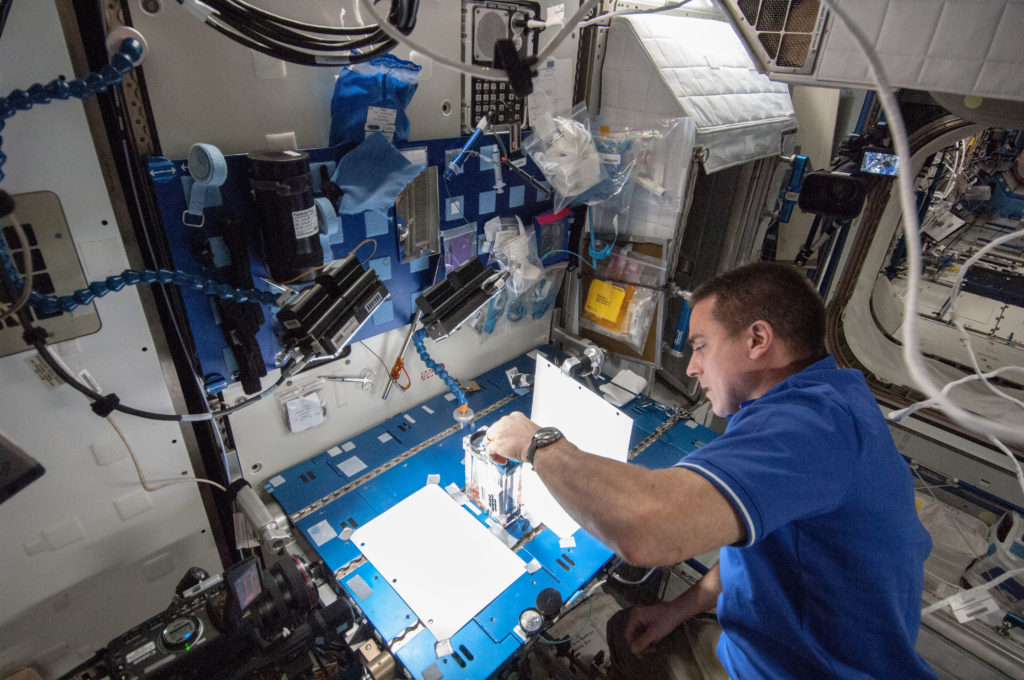
By James Yenbamroong
Mankind has always been defined by our collective curiosity. We constantly push for greater things, expanding our knowledge and influence over the world around us.
Some achieved things that were previously thought impossible. The Wright brothers flew the first fixed-winged aircraft, Yuri Gagarin was the first man in space and Neil Armstrong, the first person to walk on the Moon.
Their accomplishments are proof to us that many things are possible to achieve.
I believe this is also the case for space exploration and its eventual colonization. Elon Musk and Richard Branson, are actively making space travel more accessible to the general public through privatization of the space travel industry.
However, the push forward does not come without struggle. The lack of understanding from the general public, that any progress made in the space research field is only profitable to academia has led some to believe that space-related projects are wasteful, that the money should be spent on helping alleviate widespread poverty and hunger in conflict zones and poverty-stricken areas instead.
In the United States, for example, people question the amount of government funding that goes to the National Aeronautics and Space Administration (NASA), the country’s space program. Many believe that the US government is spending tremendous amounts of money on NASA. In truth, NASA only consumes 0.23% of the country’s annual budget in 2013.
Space Technology is beneficial to all
Through the development of space technology, much of the results of the research have been adapted to be applicable to our daily lives. Here are just a few examples:
- Prosthetic limbs – NASA’s advancements in the areas of robotics, shock absorption and comfort have given prosthetic manufacturers an additional basis for the development of more advanced artificial limbs. Artificial muscle and actuation technology used by NASA’s robots are now being used to create more dynamic and functional limbs.
- Durable tires – NASA’s space missions require extremely durable materials for parachutes for use on Mars. To achieve this, tire manufacturing company Goodyear developed a material five times more resilient than steel. Seeing the potential of the material, they integrated the technology into creating better and more durable radial tires.
- Memory foam – For its missions, NASA needs a foam padding capable of absorbing shock while providing comfort at the same time. This eventually led to the invention of memory foam. Today, the material is commonly used in beds and pillows. It is also found in the seats of automobiles and aircraft.
- Nutrient-rich baby food – Astronauts in space require substantial nourishment to keep them healthy. Certain nutritional enrichment ingredients that were developed by NASA have been integrated into baby food formula.
As such, we all benefit from the advances in space technology and researches, whether directly or indirectly.
Benefits to the economy
Space technology has also helped improve economies. Within the next three years, the space exploration and space tourism industry are expected to be valued at 3 trillion USD. According to G. Scott Hubbard, professor of Aeronautics and Astronautics at Stanford University, “We explore space and create important new technologies to advance our economy. It is true that for every dollar we spend on the space program, the US economy receives about $8 of economic benefit. Space exploration can also serve as a stimulus for children to enter the fields of science and engineering.”
As the space industry begins to grow, so will the demand for professionals with backgrounds in science, technology, engineering, and mathematics. These people will be crucial in the development of space travel technology and conducting researches on the effects of space travels on the human body.
The resources are running out
With all the benefits aside, a serious pursuit of space travel and technology will be crucial in the future. With the human population is on a steep increase, the natural and non-renewable resources are fast dwindling. The race to obtain natural resources cause countries and companies to compete for rights to extract valuable minerals and fossil fuels while displacing people and destroying wildlife habitats in the process.
Then there is the issue of global warming. With the increase in sea level due to melting polar ice, many island nations such as the Marshall Islands and Kiribati already felt the impact as the ocean is progressively rising, flooding homes and decreasing shorelines. With the decreasing livable space and resources, it will greatly benefit humankind to find another suitable habitat before Earth is depleted of all its riches. To quote renowned physicist, Stephen Hawking, “The survival of the human race is at risk as long as it is confined to a single planet.”
To many people, the idea of space travel may still seem far-fetched. However, I believe that it is important that we keep going forward or we risk delaying further discoveries and technological advancements that will be beneficial for us.
The current world population of 7.3 billion is expected to reach 8.5 billion by 2030. Photo: Guillaume

James Yenbamroong is an engineer, technology entrepreneur, and the CEO and founder of mu Space Corp.
This essay is republished here with the kind permission of the author, and was originally published here.







